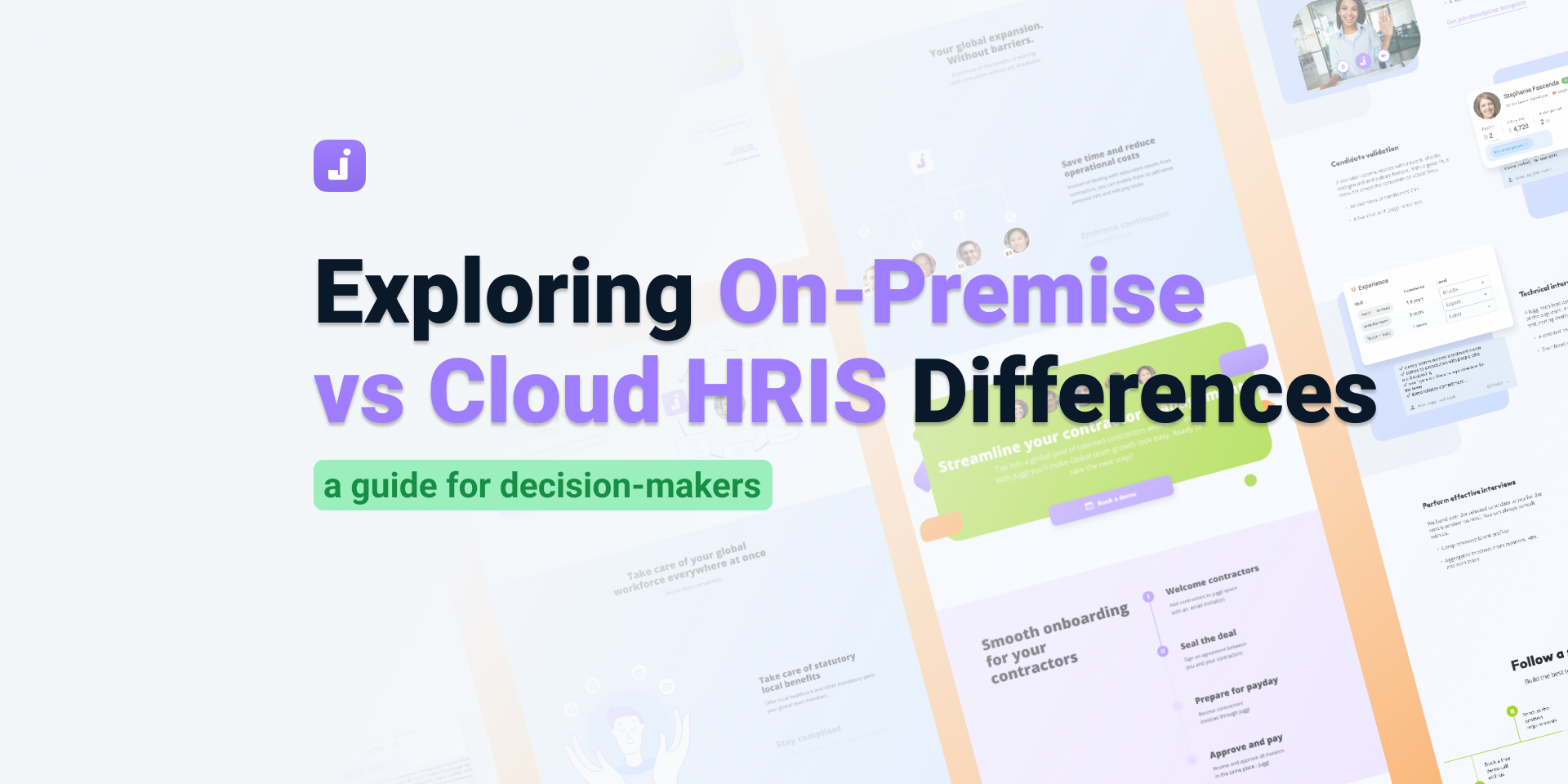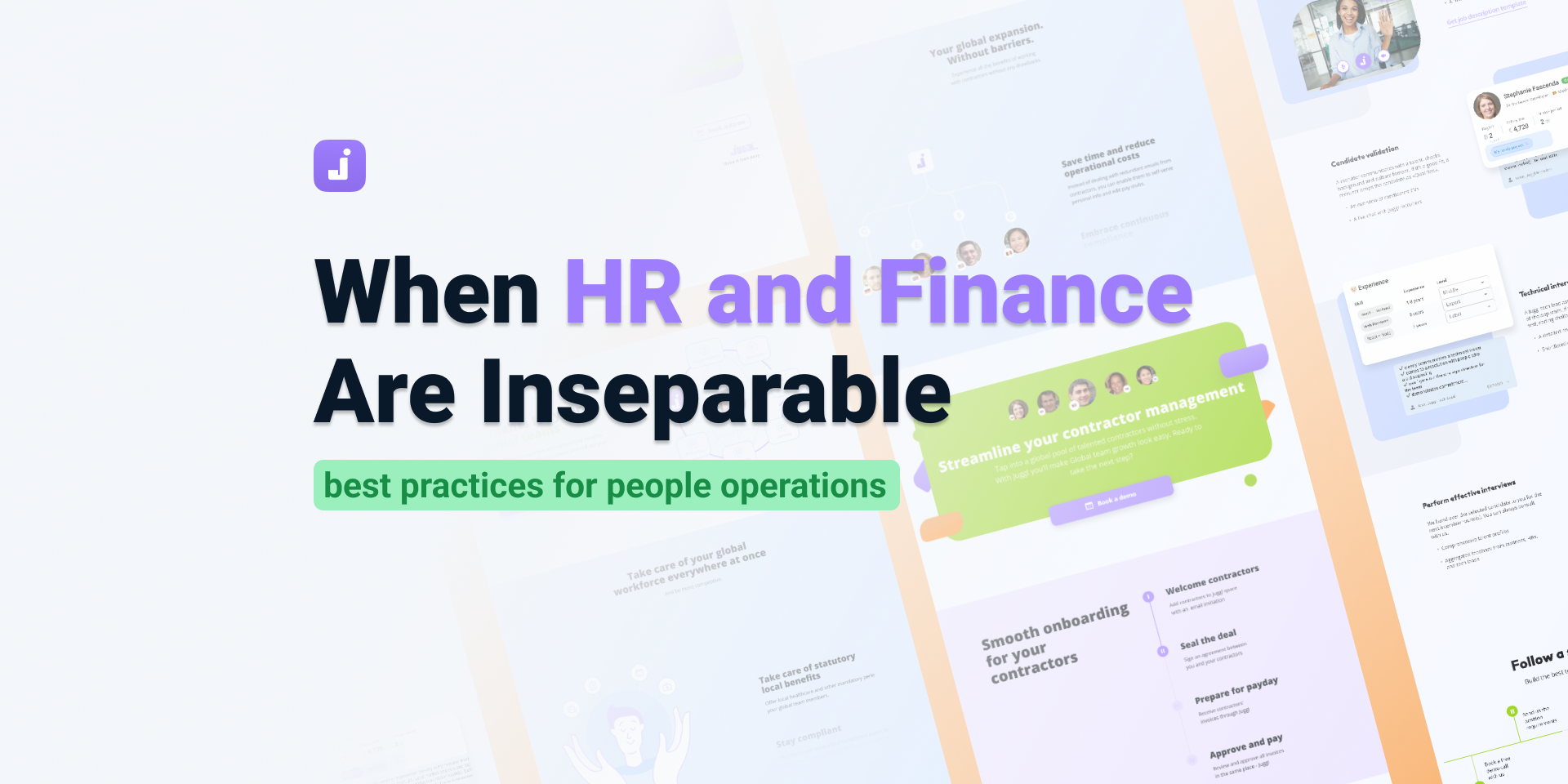5 Biggest Challenges Every Payroll Manager Faces and How to Overcome Them
Payroll is one of the pillars of effective business operations, no matter whether in a multinational corporation or in a five-people startup. And being a payroll manager is a responsibility you can't underestimate. It’s about running a finely tuned operation where timing, accuracy, clarity and employee trust all matter. One small mistake can ripple through the entire company – not just in the books, but in morale.
As the world keeps changing and businesses keep expanding, the job has gone beyond spreadsheets and calculators. Modern payroll managers are expected to manage data across multiple systems, adapt to last-minute changes, handle complex pay structures, and keep everything running at scale.
The good news, however, is that technology evolves together with the job description. With the right tools – especially a well-designed HRIS and payroll system – a payroll manager can boost the payroll workflows, dramatically tighten accuracy, and free up time to focus on strategy instead of fire-fighting. In this article, we'll take a closer look at the biggest challenges every payroll manager encounters at some point and see how to resolve them.
What Does a Payroll Manager Do?
A payroll manager is the person (or sometimes an entire team) responsible for making sure everyone gets paid correctly and on time. However, the role stretches way beyond just running the payouts.
Depending on the company, payroll might live under HR, Finance, or its own dedicated payroll team.
- In HR, payroll is closely tied to employee data, benefits, and leave management, making payroll management in HR a natural fit.
- In Finance, payroll is part of the broader money flow, where accuracy and forecasting are the top priority.
- In larger companies, a standalone payroll team focuses purely on payroll processing, pre-payroll checks, and operations optimization.
No matter where it sits, payroll management requires balancing people, processes, and tech, as well as making sure all three work together in perfect synergy.

Challenge 1: Keeping Payroll Data Organized Across Multiple Systems
Why It’s a Problem
For many payroll managers, the biggest headache isn’t the payday itself but the messy lead-up, or pre-payroll stage. Employee details might live in one HR tool, time-tracking data in another, and pay rules in a spreadsheet buried in a shared folder – this organizational chaos is one of the key reasons pay cycle closings take longer than they should, resulting in overtime or even weekends going into payroll processing.
When payroll management means pulling numbers from multiple sources, the pre-payroll stage becomes a minefield. Every manual copy-paste increases the risk of errors, missing data, or misaligned records. Even small mistakes here can snowball into incorrect payments or delays, and such mishaps, in their turn, undermine employee trust and loyalty.
How to Fix
The solution is to centralize payroll management so all employee and pay data lives in one connected ecosystem. A modern HRIS payroll management system like Juggl can pull attendance, leave, benefits, and salary info into one place automatically. That means no more cherry-picking data scattered across systems or having to reconcile mismatched spreadsheets. You get cleaner pre-payroll data, faster processing, and fewer headaches when payroll closing approaches.
Challenge 2: Managing Last-Minute Changes in Payroll Processing
Why It’s a Problem
Payroll managers know how it usually happens: just when you’re finally ready to close the cycle, someone submits a late timesheet, requests a last-minute overtime approval, or mentions a performance bonus that wasn’t in the original plan.
When payroll processing depends on manual edits, these late changes can derail the schedule. Adjusting figures under time pressure raises the risk of mistakes, especially if you work across multiple systems that don’t sync in real time.
How to Fix
"Urgent" doesn't have to mean "chaotic". You can’t stop last-minute changes from happening, but you can make them painless to handle. A smart payroll and pre-payroll management system with built-in automation can flag changes instantly and recalculate payroll on the fly, keeping everything aligned without forcing a full restart.
Look for an HRIS payroll platform that allows flexible workflows and custom calculation algorithms. This way, you can update a single record without breaking the rest of the payroll cycle.
Challenge 3: Handling Diverse Pay Structures & Schedules
Why It’s a Problem
This challenge is especially familiar to you if you work in a multi-national company with a distributed team. Not every employee fits into the same workflow. Many payroll managers are juggling a mix of hourly staff, full-time employees, contractors, freelancers, and shift workers. Oftentimes the employees are scattered across different regions or departments, which adds another level of complexity to an already demanding process.
When pre-payroll means manually calculating overtime, shift differentials, allowances, or contract-specific rates, the process can't but get messy – any manual work is prone to error. In fact, about 46% of payroll-related mistakes occur from human errors during calculation. And if your payroll management setup can’t handle multiple rules at once, your only solution is to build workarounds that waste time and invite even more errors.
How to Fix
Invest in a payroll management system that’s built to handle variety without extra effort. The right HRIS and payroll platform can store multiple pay structures, automatically apply the right rules for each employee type, and generate accurate calculations every time. This not only makes payroll in human resource management more efficient, but it also frees your team from having to be part-time mathematicians every pay cycle.
Challenge 4: Maintaining Employee Trust in the Payroll Process
Why It’s a Problem
When it comes to pay, even one mistake can shake confidence and undermine employee satisfaction. A late paycheck, an unexplained deduction, or an incorrect pay amount, quite naturally, creates inconvenience for employees. But in addition to that, it can damage employee trust in both the payroll manager and the company.
It gets worse when there's a lack of transparency. If employees can’t easily see their pay history, track leave balances, or understand how amounts were calculated, they end up chasing HR for answers. That eats into everyone’s time and slows down other parts of payroll management in HR.
How to Fix
Trust starts with visibility. Offering an all-inclusive employee self-service portal through your HRIS payroll system allows employees to securely check their pay stubs, tax forms, and leave records without waiting on HR or payroll staff. Tools like Juggl also offer benefit and leave request management with customizable approval flows and easy request tracking across teams and departments.
This level of transparency not only reduces queries but also positions the payroll management process as reliable, predictable, and professional – the kind of system employees can depend on every payday.
Challenge 5: Scaling Payroll Management as the Company Grows
Why It’s a Problem
A payroll manager who can comfortably process payroll for 50 employees might hit serious bottlenecks when that number increases. The same manual steps that once felt manageable now eat up entire days, and errors multiply under the pressure.
Without a scalable approach, payroll management in HR can quickly become a choke point for the entire organization. Adding more people to the payroll team isn’t always the answer if the systems and workflows themselves can’t keep up.
How to Fix
Future-proofing is key. A modern payroll management system – ideally part of an HRIS and payroll suite – should be able to handle a growing headcount without adding complexity to each cycle.
Features like automated pre-payroll data collection, configurable approval flows, and on-demand reporting mean you can keep the process smooth whether you’re paying 50 people or 5,000.
How Juggl Takes Care of Major Payroll Management Challenges
Juggl is a full HRIS payroll suite designed to remove friction from every stage of HR and payroll. Here’s how it tackles the five biggest pain points for a payroll manager:
- All-in-one platform: Juggl centralizes employee data, time tracking, benefits, and payroll in one system, eliminating the need to jump between tools and handle endless spreadsheets.
- Real-time flexibility: Juggl lets you handle last-minute payroll changes instantly, without breaking the cycle or risking errors. The platform integrates easily into your existing toolkit, pulling data from different sources and uniting it under one interface.
- Multi-structure support: Manages different types (hourly, salaried, contract, and shift-based) of pay rules without custom workarounds. Juggl allows you to set up custom rules and formulas for easy payroll calculation.
- Employee self-service: Juggl gives staff secure access to pay history, leave balances, and records, boosting transparency and trust. Managers can overview their team members' benefits balances and approve requests in a few clicks.
- Scalable design: Handle growing headcount easily with automation and streamlined workflows, so payroll stays smooth at any size.
Juggl helps businesses of any size streamline the payroll workflow and takes off the pressure from your payroll team. Contact us to learn if Juggl is built for you and how it can help you tackle your biggest payroll-related obstacles.









